Every year manufacturers come out with a ton of new products. Pool retailers get bombarded with new toys, better pumps, filters, liners, chemicals, tiles, building products, and of course, new equipment add-ons. During the twenty-nine years that I have been in the pool business I’ve seen new products promise great things, especially the area of swimming pool water chemistry.
The promises that come with a new product don’t get any sillier than the promises made by pool chemistry helper products. Promises such as “just add this frog-shaped pill to your pool and you’ll never have to add anything else” or “plumb in this electronic device and always have perfect pool water” are just two examples of the ridiculousness pool professionals have to endure. These notions are completely inaccurate, but who is the average innocent pool owner going to believe – the ponytailed pool guy with holes in his shorts that are caused by chlorine or the supercool new 3-D store display with a picture of a smiling dolphin swimming with a happy family?
It seems like every year I have to defend my knowledge of water maintenance against these million-dollar marketing ploys and I often lose. People will buy into this stuff anyway and I can’t blame them. How can they know any better? Usually a couple years later they know better as these expensive items will show their uselessness. This is no exception in the above ground sector of the pool industry. I recall many years ago this new item called an ionizer became popular with the new construction of in-ground pools. About five years later, the manufacturers started making them for above ground pools and for a little while they were everywhere. Today ionizers are still around for some reason. So, since they are available to the new pool owner, I guess I should talk about them.
So What Is an Ionizer and How Does It Work?
OK, I’m not a chemist and I’m not going to get into the boring details of how heavy metal ions are made and how they kill living things. This is the Internet so if you’re a nerd or don’t want to take an Ambien to sleep, look up copper ions and read away. Here instead is the common guy’s description of ionizers for pools.
When you hear of ionizers for swimming pools, you’re hearing of copper ionizers. Little things want to live and reproduce in our swimming pools. We don’t  want those little thigs to live in the water that we swim in. When some heavy metals like copper are present in water, those little things have a harder time living. This is where a copper ionizer comes in. It introduces copper into the pool making it harder for little things to live.
want those little thigs to live in the water that we swim in. When some heavy metals like copper are present in water, those little things have a harder time living. This is where a copper ionizer comes in. It introduces copper into the pool making it harder for little things to live.
An ionizer is a simple device. It’s a tube with a solid copper block inside it with a couple of wires attached to the block. The wires connect to a simple electronic device that sends an electric current to the copper block when you plug it into an electric outlet. So, this tube with the copper block is plumbed into the pool equipment after the filter and back to the pool. When the pool pump is turned on, water flows through this tube with the copper block. As the water flows through, an electrical charge is sent to the copper block causing it to break up a little and release into the water that sends copper into the pool. Over time the block gets smaller and smaller as it breaks up and is released into the pool. Every year or two the block of copper has to be replaced in the ionizer. And that’s it.
An Ionizer Does Work, but Is It Worth Having?
Many things that are designed for pools don’t work at all. At least an ionizer does kill things in the water. Is it worth spending the money on one though? My opinion is that it is not worth it. I may just be a jaded old pool guy remembering the simple days when swimming pools had only a pump and a filter, so let me explain myself just in case.
SLEEPY EXPLANATION ALERT: GRAB SOME COFFEE!
A swimming pool’s water chemistry has to accomplish two major things in order to keep the pool safe and healthy. It has to sanitize and oxidize little living  things. Now sanitize is the tree-huggers word for “killing” and oxidize is the same as the Mafia term “getting rid of”. In regular guy terms then, pool chemistry has to kill and then get rid of what’s been killed. You can’t have one without the other. You can’t kill and then not get rid of it. The pool would then be like an episode of “The Walking Dead” and that’s clearly not healthy. And you can’t get rid of things that aren’t dead yet. That would require a massive refugee camp for microorganisms somewhere outside the pool. Not gonna happen.
things. Now sanitize is the tree-huggers word for “killing” and oxidize is the same as the Mafia term “getting rid of”. In regular guy terms then, pool chemistry has to kill and then get rid of what’s been killed. You can’t have one without the other. You can’t kill and then not get rid of it. The pool would then be like an episode of “The Walking Dead” and that’s clearly not healthy. And you can’t get rid of things that aren’t dead yet. That would require a massive refugee camp for microorganisms somewhere outside the pool. Not gonna happen.
An ionizer only sanitizes and doesn’t oxidize. This means that a pool needs more than just an ionizer. It cannot stand alone and must have help with at least something doing the oxidizing. Actually though, an ionizer also needs help doing the sanitizing too as the job of killing is just too great for it. What I am getting at here is a pool with an ionizer still needs something major to kill and get rid of it so at best it is just a helper for swimming pool chemistry. Whether it is a really good helper is certainly in question.
The Bottom Line
Here’s my bottom line on this. I ran a swimming pool maintenance company for thirteen years and during that time we recorded chemical usage in every pool. The pool routes had every possible variation of pool equipment add-ons including some with ionizers. In my observation and recordings, the pools with the working ionizers did not use fewer chemicals than the ones without ionizers. Also, the pools with ionizers presented no fewer problems associated with pool water chemistry.
Ionizers do provide some sanitation in swimming pools and they are safe to use with above ground pools as they cannot affect the vinyl liner. However, I don’t think they are worth the cost as a $300 dollar ionizer and a $100 every two years for a replacement block can buy a lot of chlorine.

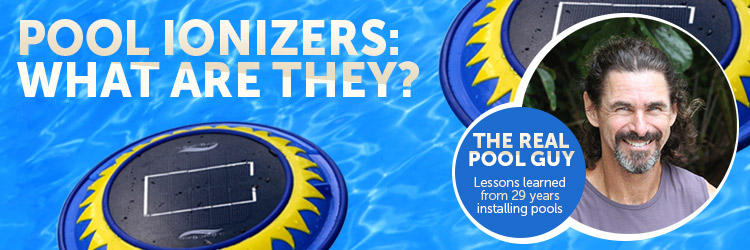


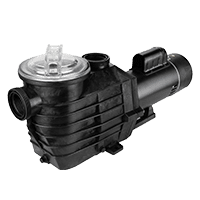
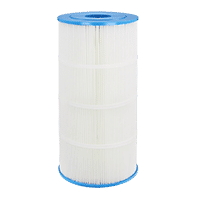
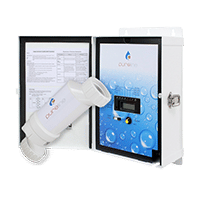
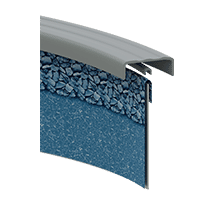

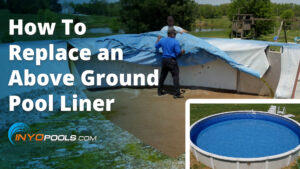

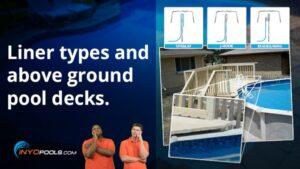
Leave a Reply